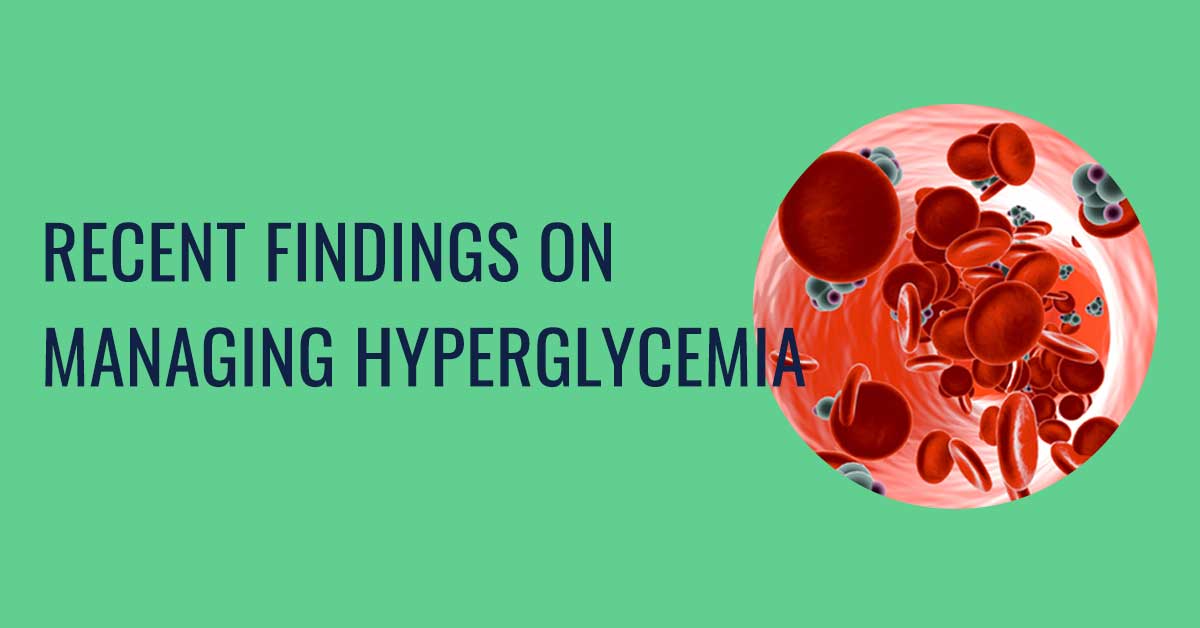Over the last few decades, morbid obesity has been a constantly growing problem around the world. Defined as weighing over 100% of one’s ideal body weight, morbid obesity adversely affects one’s health and life expectancy.
It raises the risk of associated comorbidities such as type 2 diabetes, coronary disease, hypertension, sleep apnea and even certain types of cancer. Added to these health risks, individuals must also face the high cost of treatments that they incur.
Morbid obesity also contributes to negative psychological and social conditions. In particular, studies show that many clinically obese people suffer from depression and low self-esteem. They are also often subjected to social prejudices and biases. Furthermore, results of the obesity epidemic such as work absenteeism and decreased productivity, put pressure on economies and society.
It is then indisputable that morbid obesity severely decreases one’s quality of life. However, many of the problems associated with morbid obesity can be resolved with sufficient weight loss.
Sadly, most clinically obese patients don’t achieve adequate results through conventional methods of weight loss such as dieting, exercise routines and medication. Even when progress is made, it is often not maintained.
Bariatric surgeries were introduced as an answer to this problem. The number of bariatric surgeries performed around the world has grown rapidly over the years as they produce outstanding results with patients who have failed to lose weight through conventional methods.
Currently, gastric bypass surgery (GBP) is the world’s most commonly practised bariatric surgery. It has proven to be extremely effective at resolving comorbid diseases and produces significant and sustained weight loss. If you are trying to narrow down the list of bariatric surgeries that appeal to you, make sure to keep reading till the end to find out all that you need to know about gastric bypass surgery.
WHAT IS GASTRIC BYPASS SURGERY
Many experts consider gastric bypass surgery, also known as Roux-en-Y, to be the best weight loss surgery available. The procedure is highly successful at achieving significant weight loss and also maintaining it over the years. Apart from that, it has been shown to reduce comorbidities associated with morbid obesity in over 90% of patients.
The surgery involves decreasing the size of the patient’s stomach. This is done by dividing the stomach into two parts with surgical staples, creating a small pouch out of the top part of the stomach. This ‘new stomach’ receives all the food swallowed by the patient. The larger portion of the stomach does not receive any food. However, it remains attached to the digestive tract and continues to secrete digestive juices. A part of the small intestine known as the jejunum is then pulled up and attached with stitches to a small outlet in the newly created stomach pouch. The other end of the tube is surgically attached to a place further down the small intestine, forming a ‘Y’ configuration. This allows the food that enters the new stomach pouch to bypass most of the stomach as well as the upper section of the intestine.
Gastric bypass surgery is carried out under general anesthesia. Nowadays, the procedure is mostly done laparoscopically. However, sometimes an open surgery may be required. Laparoscopic surgery is less invasive than open surgery. A laparoscopic camera and surgical equipment are inserted into the body through 6 small incisions made on the abdomen. Compared to open surgery, this method is less time-consuming. Additionally, there is less blood loss, reduced hospitalization time, less post-operative pain with a faster recovery and fewer complications than open surgery.
Another advantage of this surgery is that it is reversible.
HOW DOES GASTRIC BYPASS SURGERY WORK
Bariatric surgeries are categorized depending on how they work. Most of these surgeries are classified as either restrictive or malabsorptive procedures. Gastric bypass surgery, or Roux-en-Y, utilizes both of these mechanisms to produce results. This is one of the main reasons that make gastric bypass surgery far more effective than other types of bariatric surgery.
The creation of a small stomach pouch restricts the volume of the stomach. Furthermore, the pouch is created out of the upper part of the stomach, which has a low capacity for stretching. As a result, the stomach holds only a small amount of food. This leads to a decrease in appetite, and patients feel full after consuming small portions of food. The small opening of the new stomach or the stoma also delays stomach emptying, which allows patients to feel full for longer periods of time.
The malabsorptive component of the procedure is accomplished by rerouting the intestines. As this new gastro-intestinal pathway bypasses a significant portion of the upper intestine, the body absorbs fewer calories than it did before the procedure.
SUITABLE CANDIDATES FOR GASTRIC BYPASS SURGERY
Bariatric surgeries should never be considered as the first option for weight loss. However, if you are suffering from morbid obesity, and have failed to produce satisfactory results through conventional means of weight loss, gastric bypass surgery may be a viable option for you.
If your BMI is above 40, you might be an ideal candidate for gastric bypass surgery. In addition, you may also consider gastric bypass surgery if your BMI is above 35 and you wish to reduce the threat of harmful comorbidities, such as heart disease, hypertension, high cholesterol, sleep apnea, asthma, and type 2 diabetes.
AFTERMATH OF GASTRIC BYPASS SURGERY
RECOVERY
Laparoscopic gastric bypass surgery takes roughly around 90 minutes and is a far more comfortable experience than open surgery. With this method, blood loss is minimal and patients experience only a slight but bearable amount of pain.
You might experience an initial discomfort around the abdominal area which will resolve naturally within a few days. Patients are allowed to walk whenever they feel comfortable and are able to do so within the first 24 hours. The small incisions that are made during the surgery leave little to no scarring.
Patients are discharged from the hospital within 3 to 4 days after the surgery. Recovery is very quick, and most patients get back to their daily routines within 2 to 3 weeks. Note that recovery time may vary slightly with each individual according to their physiology.
Your physician will guide you on a dietary plan after your surgery. For the first 2 to 3 weeks, patients are allowed only a liquid diet. After that, they are allowed to transition to semi-solids which will continue for a further 3 to 4 weeks. Patients will be allowed to get back to a normal diet after that. However, even after getting back to normal foods, you will notice a stark reduction in the amount of food that you consume. You might also be advised to take vitamin and mineral supplements as the intestinal bypass creates changes to the regular absorption of nutrients. At HealthyWeight Australia (HWA), our healthcare providers carefully monitor our patients and offer individualized assistance over a long period of time till they achieve desired results.
RESULTS
Gastric bypass surgery is the most effective bariatric surgery, yielding the highest and prolonged results in weight loss. Initial loss of excess weight can range from 60 to 90 per cent. Studies show that a majority of patients have been able to maintain this weight loss for long periods of time. Only a small percentage of lost weight is gained after a few years. As with any weight loss program, the best results are achieved and sustained with a commitment to a healthier lifestyle.
Apart from the direct loss of weight induced by gastric bypass surgery, other significant benefits include a decrease in risk or complete resolution of most comorbidities associated with morbid obesity.
The rerouting of the intestines affect hormones that promote blood sugar, which allows patients to cut down or, in most cases, completely eliminate medication for type 2 diabetes within days after the surgery. Studies show that gastric bypass surgery is also effective at reducing the risk or resolving other conditions, such as heart disease, hypertension, osteoarthritis, non-alcoholic fatty liver, asthma and sleep apnea.
Gastric bypass surgery has also been shown to drastically improve the quality of life of patients. Patients can expect improvements in overall physical health and mental/ emotional status. It has demonstrated positive effects on mental conditions such as depression and self-esteem. The weight loss achieved can positively contribute towards professional and platonic relationships. Patients also report drastic reductions in habits like binge eating.
RISKS ASSOCIATED WITH GASTRIC BYPASS SURGERY
Laparoscopic gastric bypass surgery is a relatively safe procedure compared to many other surgeries. Nevertheless, as with any surgery, there are risks and complications involved with it. Some of the main complications associated with gastric bypass surgery include pouch stretching and breaking down of staples that form the small stomach pouch. Other risks include symptoms of nausea and reflux due to a narrowing of the stoma. A common problem, known as ‘dumping syndrome’, occurs when ingested food passes too quickly from the stomach to the intestine, causing nausea, sweating and even diarrhea. This can be avoided by abstaining from food with high sugar content. Vitamin and mineral deficiencies are also sometimes seen in patients due to the reduced absorption of nutrients caused by the surgery. Your physician will advise you on a nutrition supplement plan to rectify this.
Severe complications such as internal bleeding and infection are extremely rare and are seen in less than 3% of patients.
COST OF GASTRIC BYPASS SURGERY
At HealthyWeight Australia, our pricing plans for gastric bypass surgery are comprehensive and include everything from your initial screening and assessments, all the way to the post-procedural multidisciplinary care that is given to you. You just have to pick the plan that fits your budget and HWA will take care of the rest for you.
Gastric Bypass
The gastric bypass works by several mechanisms. First, similar to most bariatric procedures, the newly created stomach pouch is considerably smaller and facilitates significantly smaller meals, which translates into less calories consumed.
Platinum
24 month program
$22,450
Out-of-Pocket
Insured pricing
$9,450
Out-of-Pocket
- 8 appts with the bariatric physician
- 3 appts with surgeon
- Unlimited appts with the bariatric nurse practitioner
- 20 total allied health appts
- Hospital – surgery and 2 night’s stay in ward bed
- Anaesthetist, surgical assistant and Surgeon fees.
- 8 body composition measures
- Wifi Scales
- Fitbit
- Option to do consultations through Telehealth
Gold
18 month program
$21,950
Out-of-Pocket
Insured pricing
$7,950
Out-of-Pocket
- 5 appts with the bariatric physician
- 3 appts with surgeon
- Unlimited appts with the bariatric nurse practitioner
- 12 total allied health appts
- Hospital – surgery and 2 night’s stay in ward bed
- Anaesthetist, surgical assistant and Surgeon fees.
- 6 body composition measures
- Option to do consultations through Telehealth
Silver
12 month program
$19,950
Out-of-Pocket
Insured pricing
$6,950
Out-of-Pocket
- 3 appts with the bariatric physician
- 3 appts with surgeon
- Unlimited appts with the bariatric nurse practitioner
- 8 total allied health appts
- Hospital – surgery and 2 night’s stay in ward bed
- Anaesthetist, surgical assistant and Surgeon fees.
- 4 body composition measures
- Option to do consultations through Telehealth
Click here to find out more about the laparoscopic gastric bypass service offered at HealthyWeight Australia.











